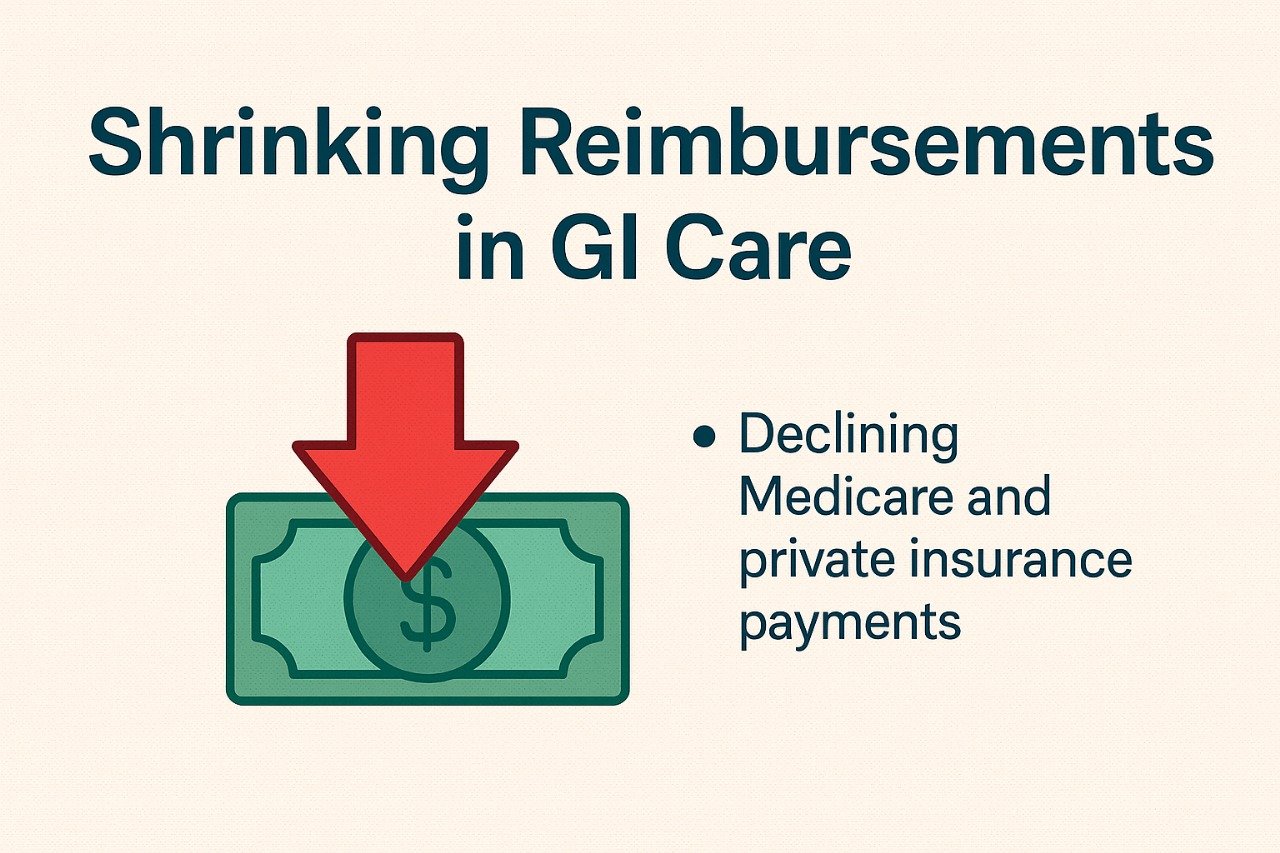
Gastroenterologists across the United States are grappling with sustained financial challenges due to progressive Medicare reimbursement cuts. The 2025 Medicare Physician Fee Schedule introduces a 2.83 % reduction in physician payments, marking the fifth consecutive annual decline (Gastroenterology.org, 2024). These continual reductions have significantly eroded financial margins for gastroenterology (GI) practices and raised concerns over long-term sustainability. Particularly affected are routine and preventive procedures like colonoscopies and esophagogastroduodenoscopies (EGDs). Reports highlight a 22.6 % real-term drop in colonoscopy reimbursements and a 22.7 % decline in EGD payments over the last decade, even as Ambulatory Surgical Center (ASC) facility fees for the same services have increased by up to 21.7 %, highlighting a growing disparity between provider compensation and procedural costs (Medscape, 2023).
The impact of these reimbursement trends is not only economic but also clinical. Between 2007 and 2022, Medicare reimbursements for GI procedures adjusted for inflation fell by an estimated 33 %, with specific procedures such as biopsies and screening colonoscopies declining by nearly 38 % (Becker’s ASC Review, 2022). These reductions have created operational constraints, forcing some smaller practices to limit services or consolidate, while others have shifted care settings from hospitals to ASCs in search of more favourable reimbursement structures. The net effect is reduced accessibility for patients, particularly in underserved or rural areas where GI specialists are already sparse.
Data from the American College of Gastroenterology (ACG) further underscores the clinical consequences of reduced funding. Their findings reveal an 18 % decrease in total GI procedure volume, an 11 % decline in individual procedural frequency, and a 7 % drop in the active gastroenterologist workforce in recent years (ACG, 2023). These reductions have serious implications for early detection of colorectal cancer and other digestive diseases, where timely endoscopic screening plays a critical role in patient outcomes.
In response to these concerns, professional societies and advocacy groups are intensifying efforts to reverse the trend. The Medicare Patient Access and Practice Stabilization Act has been introduced as a legislative remedy. This bill proposes a temporary 6.62 % increase in Medicare physician payment rates from April through December 2025, aimed at offsetting the impact of current and projected reductions (GI.org, 2024). Supporters argue that this measure will help stabilise practice revenues, maintain patient access, and support continued investment in GI service delivery infrastructure.
In conclusion, the persistent reduction in Medicare reimbursement for GI procedures is placing unsustainable pressure on healthcare providers, threatening both the economic health of GI practices and the accessibility of essential diagnostic services. Without legislative intervention or systemic reform in reimbursement policy, the downward trajectory may lead to increased health disparities, particularly for vulnerable populations dependent on Medicare-funded care. Consequently, many in the field see urgent reform not as a financial favour but as a public health necessity.



